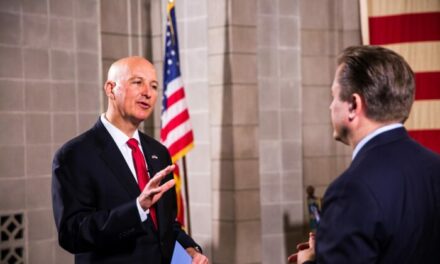We support our Publishers and Content Creators. You can view this story on their website by CLICKING HERE.
Attorneys for former President Trump have argued that Mr. Smith’s appointment was unlawful.
U.S. District Judge Aileen Cannon, who is overseeing one of the four criminal cases against former President Donald Trump, has scheduled a hearing on June 21 to address the lawfulness of special counsel Jack Smith’s appointment.
While it is not unusual to allow amicus briefs to be filed in a district court case or to hold a hearing on a defendant’s motion to dismiss a case, it is uncommon to allow third parties to participate in oral arguments at these hearings, one of the amici told The Epoch Times.
In follow-up orders, the judge expanded the issue by referencing the U.S. Supreme Court’s recent opinion regarding the Appropriations Clause.
Attorneys for former President Trump have argued that Mr. Smith’s appointment was unlawful and that he was unlawfully funded according to their interpretation of the Appropriations Clause. Judge Cannon had ordered the parties to submit further briefing in light of the new opinion and has scheduled an additional hearing on the funding arguments for the morning of June 24.
Regardless of the judge’s ruling, an appeal to a higher court is expected. If the judge rules for the defense, it only heightens the chance of an appeal being accepted. Mr. Smith is prosecuting two cases against former President Donald Trump, and courts are not likely to favor a situation where Mr. Smith is authorized to prosecute in one jurisdiction but not in another.
In the Southern District of Florida, former President Trump was charged with 40 counts related to allegedly mishandling classified documents. His valet Walt Nauta and former Mar-a-Lago property manager Carlos De Oliveira were charged alongside him as alleged coconspirators, and have joined his motions to dismiss the indictment.
The case is being prosecuted by Mr. Smith, who is also leading a second prosecution against former President Trump in the District of Columbia, charging him with four counts for his alleged actions related to Jan. 6, 2021.
Former President Trump has pleaded not guilty to all the charges against him.
Appointments Clause
Attorneys for former President Trump argue that the U.S. Attorney General has no constitutional nor statutory authority to appoint a special counsel with the broad prosecutorial powers held by Mr. Smith.
Such a position best fits the description of the “officers” described in the Appointments Clause of Article II of the Constitution, which states that presidents may make such appointments by nomination, subject to confirmation by the Senate, they argued.
Mr. Smith, like the several other special counsels appointed over recent years, went through no such confirmation process. Furthermore, the defense argues, the attorney general lost the ability to appoint a special counsel when Congress let such a law expire in 1999.
Department heads, such as the attorney general, are allowed to appoint “inferior” officers that serve under their department; the Appointments Clause specifies that “Congress may by law vest” such power to department heads.
The prosecution argues that Mr. Smith is one such inferior officer properly appointed by the head of the Justice Department.
Attorneys for former President Trump argue that absent a specific law granting the attorney general this authority, Mr. Smith’s appointment is unlawful, and the powers of his office also exceed that of an inferior officer.
Among the amici arguing in support of the defense are two former attorneys general and three professors who have written extensively on special counsels, the separation of powers, and the meaning of “office” and “officer” in the Constitution.
Appropriations Clause
In May, the Supreme Court ruled that Congress had authorized the Consumer Financial Protection Bureau (CFPB) to draw money from the Federal Reserve in a way that satisfies the Appropriations Clause.
The clause is found in Article I of the Constitution: “No Money shall be drawn from the Treasury, but in Consequence of Appropriations made by Law; and a regular Statement and Account of the Receipts and Expenditures of all public Money shall be published from time to time.”
The defense argues that the Justice Department was not given permanent, indefinite appropriation for the office of a special counsel. In a follow-up brief, the defense also argued that the Supreme Court’s opinion does not deal with the context of a criminal prosecution.

 Conservative
Conservative  Search
Search Trending
Trending Current News
Current News 







